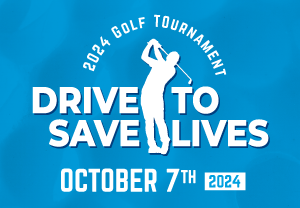 Intro
Intro
- by JasonP
- 2010-05-08 01:05:21
- General Posting
- 1099 views
- 4 comments
Hi, I've been a lurker for a while. Actually, over 5 years ago I actually chimed in with a question. If anyone wants the run-down of my situation then, here it is:
http://www.pacemakerclub.com/public/jpage/1/p/story/a/storypage/sid/902/content.do
As described in that post, I have congenital complete AV block. I've remained asymptomatic my entire life with good ventricular escape rhythm. But now at age 35, I've finally opted to follow-through on Dr. recommendations and received a pacemaker as a prophylactic measure on 4/30.
I researched everything thoroughly ahead of time. I believe this is the right decision for me though I remain concerned about the long-term risks of pacing, particularly adverse remolding of the heart muscle due to ventricular dyssynchrony introduced by right ventricular apical pacing. In my case, while the AV block caused total AV dyssynchrony (that the PM now restores), my ventricular escape rhythm was generated in location that ended up firing down the ventricular conduction paths so as to actually trigger an electromechanically synchronous *ventricular* contraction (that is to say that the two ventricles, at least, did beat properly in relation to each other).
Like ElectricFrank and others, I received a Adapta L ADDRL1. I've had no problems at all, everything went just as expected. I went from my typical resting heart rate of 42 BPM to now in the 70s - 80s. This is because my atrial rate was chronically elevated due to the block and now with the PM my overall HR is elevated as a result. We anticipate it going down over time. I have my first checkup on Monday.
Anyway, this seems to be a great support community and I plan to keep up with the discussion best I can.
4 Comments
Please explain
by Genie - 2010-05-09 09:05:53
Hi,
Can you explain what you mean by "my atrial rate was chronically elevated due to the block and now with the PM my overall HR is elevated as a result"?
The reason I ask is that I was paced 6 weeks ago for 2nd degree block and since then have had an elevated heart rate. I'm on beta blockers, but my doctors said it may go away over time. They couldn't tell me the reason for it. Just wondering if this is the same thing? You seem to know what you are talking about, so any explanation would be great!
Thanks,
Genie
RE: Please explain
by JasonP - 2010-05-09 10:05:38
Hi Genie,
In my case, and I think in many cases of AV block, the atrium tries to beat the heart faster in an effort to counteract the bradycardia (slow ventricle rate) caused by the block. It does this futilely in complete block but maybe it has some benefit in higher degrees (like your 2nd degree block).
So, for me, I had an atrial rate of 80-90. Now that I am paced and, for the first time ever, getting a 1 to 1 atrium to ventricles beat ratio, my overall heart rate is 80-90 (reflecting the real atrial rate). Before I was paced, I was basically getting a 2 atrial beats to one ventricular beat and that yielded a resting heart rate of 42.
The atrial rate is set by the amount of adrenalin present in your system. I'm anticipating my adrenalin levels will moderate with time (weeks to months) now that my block is effectively corrected and my HR will drop to a more "normal" level for my age.
Thanks
by Genie - 2010-05-10 04:05:02
Thank you - that makes a lot of sense, you explained it really well. I have an appointment with my cardiologist in a couple of weeks and hope to talk to him about this.
Genie
You know you're wired when...
Bad hair days can be blamed on your device shorting out.
Member Quotes
My pacemaker has ultimately saved mine and my unborn childs life for which I am thankful.





pro's and con's
by Tracey_E - 2010-05-08 10:05:10
Welcome aboard! Everything has benefits and draw backs but for most of us the benefits far outweigh the drawbacks of long term pacing. Every time our hr is too low or our heart beat is out of sync, it's hard on our bodies. I noticed after I got my pm that my mind was sharper and a lot of small health problems I had went away. Could be a coincidence but I figure it's the better circulation. I've been paced for 16 yrs now. My EF is 65% and (to quote the tech who did my last echo) other than the wires in there, my echo was textbook perfect.
I have CCHB also and got my first pm at 27 after a lifetime of a hr of 44, though it dropped into the 20's before I got the pm. Like you are finding, my pulse was rather high for a while after, all those years of the atria beatingbeatingbeating, trying in vain to get the ventricles to keep up. My resting rate is still a little high, but it did come down after the first year or so. It didn't take long to get used to the higher rate. I felt like i was loaded up on too much coffee the first weeks but the feeling went away.
It sounds like you did your homework and have a good understanding of pacing but if you have questions, please don't hesitate to ask.